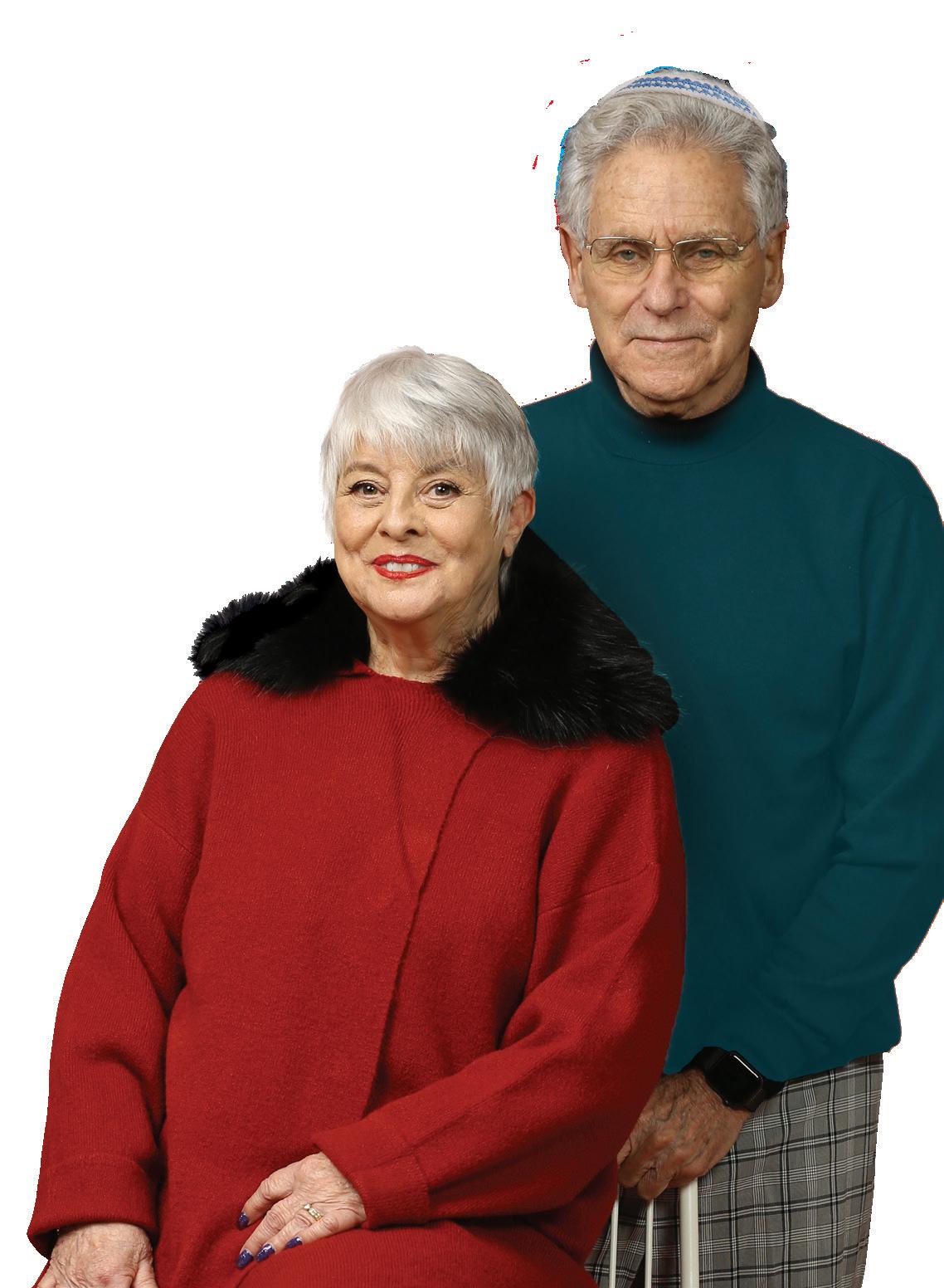
6 minute read
Moshe’s Shiny Face Rabbi Ephraim Sprecher
SPRECHER
Faculty, OU Israel Center
Advertisement
Moshe’s Shiny Face
After his third forty day stay on Mount Sinai, Moshe descended on the 10 th of Tishrei – Yom Kippur
carrying the second set of the Holy Tablets. These replaced the First Tablets that Moshe broke when he saw the Jews worshipping the Golden Calf. Moshe’s extended stay on Mount Sinai in Gd’s presence left a permanent impression on his body – his face radiated Gd’s Light! As the Torah states “Moshe was not aware that the skin of his face had become radiant.” (Shemot 34:29)
Why did Moshe’s face not shine when he received the First Tablets? Gd Himself chiseled the first set of tablets out of the sapphire stone from His very own Throne of Glory. However, the Second Tablets were chiseled by Moshe from sapphire stone buried beneath his tent. Thus, it was specifically this second set of tablets rather than the First Tablets that made Moshe’s face shine.
The Lubavitcher Rebbe explains that this is because when Gd gives us a gift without us working to earn it, it does NOT penetrate our very being. Therefore the First Tablets were broken, whereas the Second Tablets remain intact forever, hidden beneath the Temple Mount.
The message is that when we exert ourselves and work for Holy endeavors, it remains with us permanently. But Holiness that is received unearned can be more easily lost. As the saying goes, “Easy Come, Easy Go.”
Because Moshe dug up the Sapphire stone beneath his tent and chiseled the Second Tablets himself, their Holiness penetrated his physical body, and therefore his face shone only by the Second Tablets. Similarly, the effort and exertion we expend in Torah study and fulfilling Gd’s Mitzvot refines even our physical bodies. If we exert ourselves to the point that the Holy Torah penetrates us, our faces will also shine. As John Lennon famously sang, “WE ALL SHINE ON.”
The shortest Mishna in the Talmud states in Tractate Avot, “ACCORDING TO THE PAIN IS THE GAIN!”
BY TEENS
NCSY ISRAEL
Shlomo Rayman, Bet Shemesh Chapter Director
Making Sense of the Incense
One of the first things I noticed when I made aliyah as a fourteen-year-old, was that davening takes a lot longer to end here in Israel due to the additional reading about the ketoret hasamim, the incense that was burned in the Mishkan. Isn’t davening long enough? Why in Israel do we add the ketoret?
This week’s parsha starts off with the conclusion of the commandment to build the mishkan. Right after comes the recipe for how to make God’s incense. Similarly, the altar used for the ketoret is introduced after we are already commanded to build literally everything else. The other important inner vessels are mentioned right at the beginning, why is the mizbeach hazahav gets pushed off until the very end?
Perhaps the ketoret is mentioned at the very end because its job is only relevant after the mishkan is complete. The mishkan’s purpose is to bring the Shechina, God’s presence into the world, while the ketoret is actually a response to said Shechina descending.
Together with all the grandeur that comes with revealing the Shechina, there also comes a great danger. One can be overwhelmed by the sheer awesomeness of the experience, as well as the fact that every mistake one does in the presence of the King, is much worse due to the heightened pressure of perfection. The ketoret steps in as a “smokescreen” to protect us from God’s presence.
How does burning incense protect us from the Shechina? The Rambam tells us that the practical purpose of the ketoret was to cover up the bad smells of the karbanot. The ketoret is there to make the avodah a more enjoyable experience! The ketoret represents the importance of serving Hashem B'simcha! It reminds us to do the mitzvot in a beautiful manner and out of love! When one has this mindset, one is no longer serving Hashem as a servant with pressure and little room for error, but creating a relationship with Hashem as a child with their parents, filled with love and understanding.
It thus makes sense, that specifically in Israel we need to add the ketoret to our davening. Here in Israel there is a heightened sense of God’s awareness, which must come together with the ketoret, infusing our avodat Hashem with simcha and ahava.
Yedidya Pollak, 11th Grade, Bet Shemesh
A Deeper Meaning
In our parsha, the Torah talks about Moshe and Yehoshua as they descend Har Sinai. In the midst of their descent, The Torah says that Yehoshua heard noises from the Jewish camp, which Rashi says were sounds of celebration. If so, then why did Yehoshua tell Moshe that he heard a war happening in the Jewish camp?
The Or HaChaim explains that while the sounds Yehoshua heard were celebratory, Yehoshua and Moshe were able to understand that the feeling underneath all of that celebration was one of distress. And when Yehoshua mentions a war, he is referring to an internal war happening inside each Jew, against their Yetzer Hara, their evil inclination.
Moshe responds that he doesn't hear the sound of triumph, of the Jewish nation overcoming their evil inclination, nor does he hear the sound of them losing. He says that he hears the sound of someone who already lost to their yetzer, and just appears happy on the outside.
This shows us a special skill that God granted Moshe and Yehoshua; the ability to look past the superficial situation and truly understand what is going beyond the facade. They hear celebratory sounds, but they are able to identify that in truth Am Yisrael are in a lot of trouble, battling a near-impossible foe. This perspective is something that I think we need to try to bring into our everyday life. When we are dealing with family, or friends, sometimes there is a deeper meaning, other than what we see at first glance.
NCSY Israel is the premier organization in Israel, dedicated to connect, inspire, and empower teen olim to the Land of Israel by encouraging passionate Judaism through Torah and Tradition. Find out more at israel.ncsy.org

NEW BOOK LAUNCH by Rabbi Berel Wein
150 Essays On Religion, Society And Life By A Very Opinionated Rabbi
TUESDAY NIGHT, MARCH 17 AT 8 PM BEIT KNESSET HANASSI 24 USSISHKIN ST., RECHAVIA
ADMISSION FREE. Rabbi Wein will be available to personalize and sign books before and after the event. For questions and information, call Nachum Amsel 0544-54-36-18 Email: nachum@jewishdestiny.com
THE BEST DECISION WE EVER MADE Mediterranean Towers residents
Call now * 9134
Daf Yomi class Every Sunday at 9 p.m. Free entrance

The House in Arnona, Jerusalem The first choice for the third age
The magnificent house in Arnona offers spacious and luxurious apartments. If you appreciate quality, come and enjoy a wonderful living environment, and varied program of cultural and physical activities. New options till the end of March









